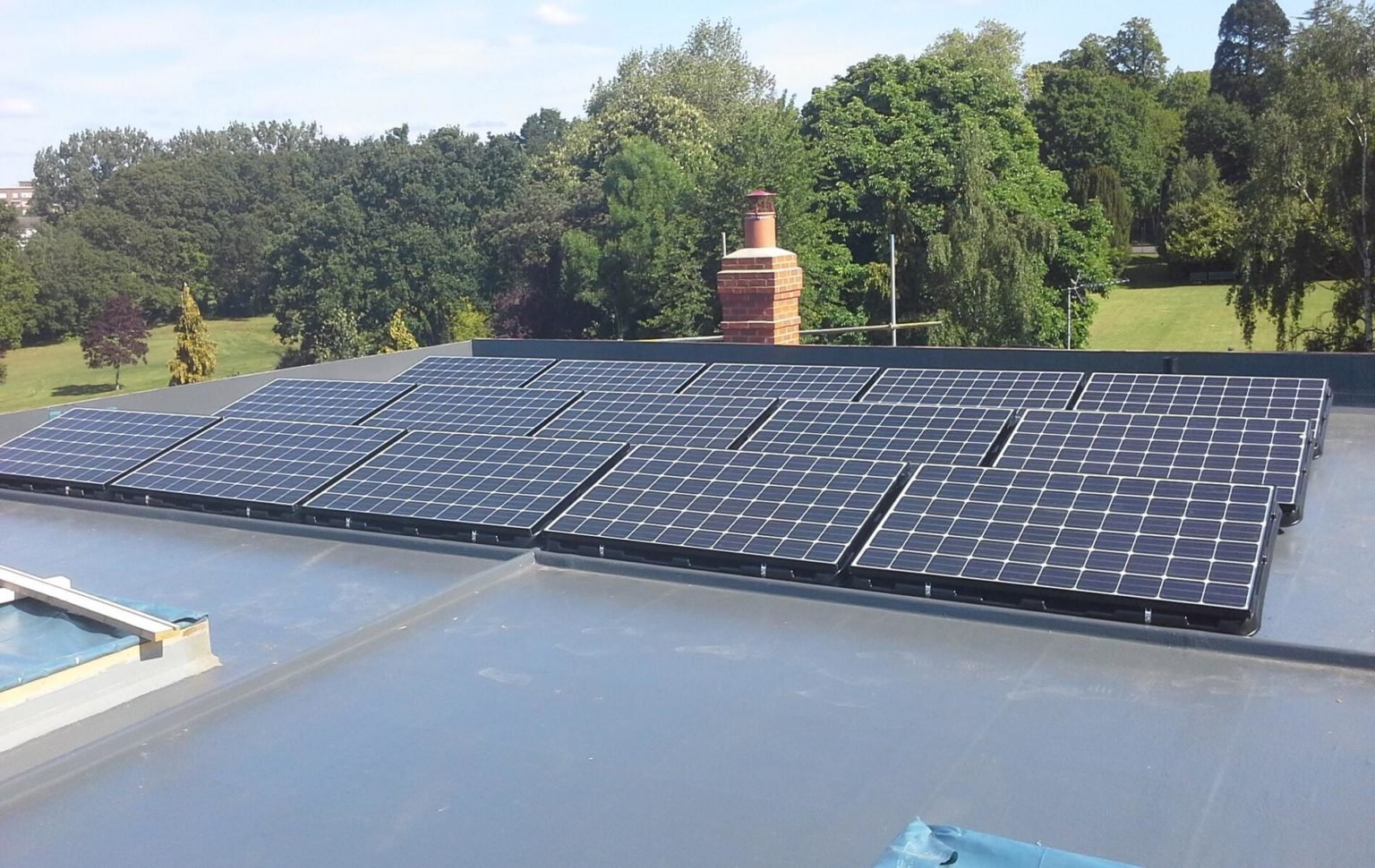The Amazing Benefits Of Solar Panels For The Environment

Overview
In today’s world, finding sustainable solutions to combat climate change and preserve our planet has become more important than ever. Solar panels offer a ray of hope in this quest, providing a clean and renewable source of energy. In this blog post, we will explore how solar panels work, their positive impact on the environment, and why they are crucial in our transition to a greener future.
- Understanding Solar Energy
To truly appreciate the benefits of Supreme Solar Panels Melbourne, we must first understand what they are and how they work. Solar panels, also known as photovoltaic (PV) panels, are devices that convert sunlight into electricity. They consist of multiple interconnected solar cells made of a semiconductor material, usually silicon. When sunlight hits these cells, it excites the electrons within them, generating an electric current that can be harnessed for various purposes.
The beauty of solar panels lies in their ability to harness clean, renewable energy from the sun. Unlike fossil fuels, which release harmful greenhouse gases when burned, solar panels generate electricity without any emissions. This makes them a vital tool in reducing our carbon footprint and combating climate change.
- Reduced Carbon Footprint
One of the most significant benefits of solar panels is their ability to reduce greenhouse gas emissions. The burning of fossil fuels, such as coal and natural gas, for electricity generation, is a major contributor to climate change. These fuels release carbon dioxide and other pollutants into the atmosphere, trapping heat and leading to global warming.
By switching to solar energy, we can significantly reduce our reliance on fossil fuels and minimise our carbon footprint. Solar panels produce electricity without any emissions, making them a vital tool in the fight against climate change. According to the studies, installing solar panels on homes and businesses can reduce carbon emissions by an average of 80%.
Furthermore, solar panels contribute to cleaner air and healthier ecosystems by reducing air pollution. Traditional electricity generation methods often release harmful pollutants, such as sulphur dioxide, nitrogen oxides, and particulate matter. These pollutants can have detrimental effects on human health and the environment, leading to respiratory problems, smog, and acid rain. Solar panels, on the other hand, produce electricity without any emissions or air pollution, helping to improve air quality and protect our ecosystems.
III. Renewable Energy Source
Another amazing benefit of solar panels is that they rely on an abundant and renewable energy source: the sun. Solar energy is a sustainable resource with an infinite supply. As long as the sun continues to shine, we can harness its power to generate electricity.
This reliance on renewable energy is crucial in moving away from finite fossil fuels. Unlike coal, oil, and natural gas, which are depleting resources, solar energy is readily available and will never run out. By investing in solar panels, we are investing in a sustainable future, ensuring a continuous and clean energy source for generations to come.
- Conservation of Natural Resources
Solar panels also play a crucial role in conserving our planet’s valuable natural resources. Traditional electricity generation methods often require vast amounts of water for cooling purposes. This water consumption contributes to water scarcity, particularly in regions already facing water stress.
Solar panels, however, do not require water for their operation. They generate electricity without consuming any water, making them a sustainable alternative that conserves this precious resource. By embracing solar energy, we can minimise our dependence on water-intensive electricity generation methods, thereby reducing the strain on our freshwater sources.

Additionally, solar panels help reduce our reliance on mining and drilling for fossil fuels. These extraction processes often have significant environmental impacts, including habitat destruction, soil erosion, and water contamination. By shifting towards solar energy, we decrease the demand for these destructive practices, helping to protect our ecosystems and preserve biodiversity.
- Minimising Environmental Pollution
Solar panels produce electricity without generating noise or air pollution. Unlike traditional power plants, solar panels silently convert sunlight into electricity, making them an environmentally friendly option for energy generation. This lack of noise pollution is particularly beneficial for industries located in residential areas or sensitive ecosystems.
Furthermore, solar panels do not emit any air pollutants during their operation. This means that by adopting solar energy solutions, we can reduce the emission of harmful pollutants such as sulfur dioxide, nitrogen oxides, and particulate matter. This improvement in air quality has a positive impact on human health, reducing the risk of respiratory diseases and improving overall well-being.
Several industries can benefit from adopting solar energy solutions. For example, the transportation industry can utilise solar panels to power electric vehicles, reducing reliance on fossil fuels and decreasing emissions. Similarly, the agricultural sector can harness solar energy to power irrigation systems and reduce the carbon footprint associated with traditional farming practices. The possibilities are endless when it comes to utilising solar energy to minimise environmental pollution.
- Preserving Wildlife and Biodiversity
Solar panels contribute to the preservation of wildlife and biodiversity by reducing land degradation associated with traditional energy sources. Fossil fuel extraction often leads to habitat destruction, displacing and endangering numerous species. Solar panels, on the other hand, can be installed on various surfaces, such as rooftops and unused land, without causing significant disruption to ecosystems.
Additionally, solar panels can help minimise risks to birds and other animals that are often affected by power lines or oil spills. Traditional energy infrastructure, such as power lines and oil pipelines, can pose threats to wildlife through collisions, electrocutions, and habitat fragmentation. By adopting solar energy, we can reduce these risks, creating a safer environment for our animal companions.
VII. Building Sustainable Communities
Solar power installations have the power to transform communities, providing them with resilient and independent sources of energy. By embracing solar energy, local communities can reduce their dependence on centralised power grids, making them less vulnerable to power outages and disruptions.
Moreover, solar energy projects can empower communities by creating job opportunities and stimulating local economies. The installation, maintenance, and operation of solar panels require skilled workers, thus creating employment opportunities in the renewable energy sector. This not only benefits individuals and families but also strengthens the overall resilience and sustainability of communities.
Numerous community projects and initiatives are already underway, focusing on renewable energy adoption and solar power installations. These initiatives range from solar-powered streetlights in rural areas to community solar programs that allow residents to collectively invest in solar installations. By supporting and participating in these projects, we can contribute to building sustainable communities that are powered by clean and abundant energy.
Conclusion
In conclusion, solar panels offer a multitude of amazing benefits for the environment. By harnessing clean, renewable energy from the sun, they help reduce our carbon footprint, combat climate change, and improve air quality. Solar panels also contribute to the conservation of natural resources, minimise environmental pollution, and protect wildlife habitats. Furthermore, they empower communities and lay the foundation for sustainable and resilient societies.
As we move forward, we must consider the positive environmental impact of installing solar panels. By embracing this clean energy solution, we can contribute to a greener future powered by sustainable resources. For further detailed information visit www.sunrunsolar.com.au the site.
Related Posts

Can Solar Panels Be Installed on a Flat Roof?

Unlocking the Potential of Solar Panels in Your Home

